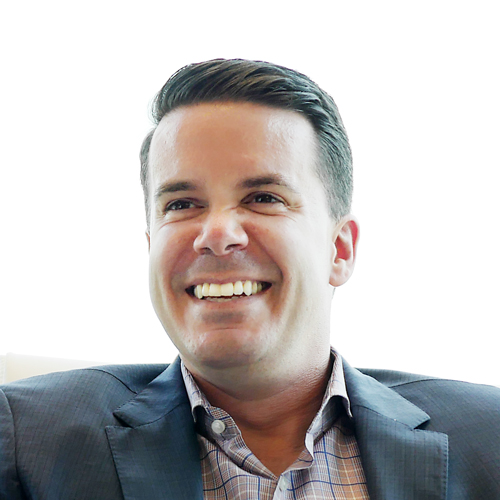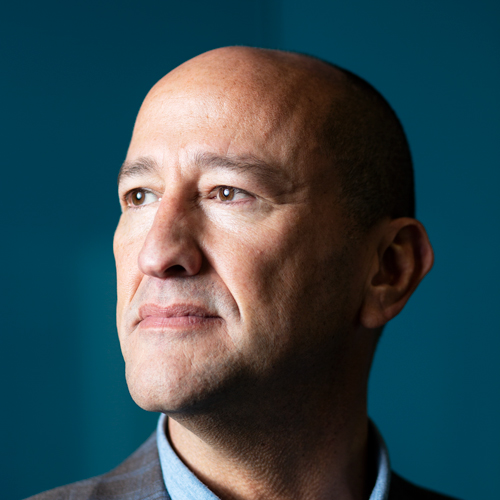|
Getting your Trinity Audio player ready...
|
Freddy Jimenez was a seasoned regulatory legal specialist. During his twenty-three years with Johnson & Johnson, he worked on a number of the pharmaceutical giant’s major brands and contributed to its federal policy advocacy. As head of J&J’s pharmaceutical regulatory legal group, he had a stable career with steady growth opportunities and every reason to keep contributing.
When Johnson & Johnson acquired a fully integrated biotech company, however, Jimenez had an epiphany. As he worked on the integration and provided legal support to the new subsidiary, Jimenez realized he wanted to contribute to a smaller operation with different challenges—a business that he could help build, rather than simply support.
“I liked the smaller feel, where you can be more directly involved in the business,” he explains. “I not only liked the idea of looking at all the legal aspects, but I also liked the idea of being on the executive committee and contributing to the future of the business.”
He’s found that at Celldex Therapeutics Inc., which he joined in 2016 as head lawyer and compliance officer after leaving Johnson & Johnson. Celldex is a New Jersey-based biotech that is engaging the human immune system to treat cancer and other difficult to treat diseases. Its small size (about 150 employees) means it can align and realign quickly, which is vital to the high-stakes and moonshot odds of the biotechnology sector.
For Jimenez, it means a smaller legal staff and fewer specialists. In a typical day, he juggles duties in securities, employment, mergers and acquisitions, licensing, and more. That requires him to recognize what he doesn’t know and when to seek guidance. “It’s not about being stretched but rather about being challenged,” he says.
Such a sense of balance is key to his approach. As a lawyer, he’s always expanding his practical knowledge by acknowledging what he doesn’t know. As a leader, he’s advancing his organization’s goals by supporting the individuals on and outside of his team.
“My ultimate goal is their success,” he says. “My approach to coaching is dynamic to the arc of career trajectory. I like to give people the freedom to operate so they can meet and exceed their potential.”
That approach to leadership even extends to Jimenez’s work with outside counsel, and it hasn’t gone unnoticed.
“We at Lowenstein Sandler have been working with Celldex for more than a decade as outside legal counsel,” says Anthony O. Pergola, a partner in the tech group at Lowenstein Sandler LLP. “We are so pleased to be able to partner with Freddy Jimenez as we have always had the greatest regard for his intellect, experience, and integrity, as well as his practical approach to addressing business and legal challenges.”
Across the rest of the organization, other teams support each other seamlessly. As a part of the executive leadership team, Jimenez helps make that happen, but it’s been integral to Celldex culture for far longer than his tenure.
“We have a team of discovery scientists that invent the molecules, a development group that conducts clinical drug development and clinical trial execution, and commercial experts that look at potential revenue opportunities,” Jimenez says. “One of the things I was immediately drawn into was the focus. We’re all rowing in the right direction—without a lot of complexity or bureaucracy—in pursuit of the goals of the company.”
That’s key to the company’s success and survival. In the spring of 2018, a compound that had shown promise in earlier clinical cancer trials failed to demonstrate “superiority over the standard of care,” and Celldex had to move on to other possibilities.
Failure and disappointment are standard experiences in pharmaceutical research, but this compound’s successful run into the late trials made this loss tougher than usual. And with Celldex’s comparatively limited resources, every experiment represents a greater risk than it would at an international giant like Johnson & Johnson.
“We hedge our bets based on where the science leads us,” Jimenez says. “We have multiple compounds in development, which is difficult because, like most biotech companies, we have finite resources to deploy. So when something like this happens, you go back and take stock and decide where the best opportunities are for future success.”
Without sales profits, the start-up model relies on the investor’s trust, so this has been a learning opportunity for Jimenez. He enjoys being an entrepreneur, though, and he reminds himself that the challenge of high-stakes risk assessment is in the service of human health.
This is not Jimenez’s first time juggling multiple roles, though. He attended law school at night while working full-time at Johnson & Johnson. Over those four years, he didn’t benefit from dedicated mentorship, and the demands of his job kept him from pursuing a summer associateship. He directly experienced the ways in which minor competitive disadvantages compounded and reduced his exposure, which made it more difficult to find a job. Now, he invests his own time speaking and mentoring to help other law students—especially those from the Hispanic community and other marginalized communities—navigate those challenges.
What he tells these students is to get good grades, participate in extracurricular activities, and network.
“Those things seem so trivial, but if you don’t have a lot of exposure to role models or lawyers, who’s going to tell you that?” he says. “I did fine, but it’s so helpful to know someone who can say, ‘Here are the pitfalls; here are the things to watch out for.’”
Jimenez currently serves as a mentor in Rutgers Law School’s Minority Student Program. Coming from a scientific background himself, he’s eager to share this industry with young people who might not recognize the legal career opportunities in the field.
“I’d love to see more Hispanics in this business,” he says. There aren’t many, he says, especially in leadership. In fact, the makeup of the boardrooms suggests the industry would do well to hire with more intention. For Jimenez, that means using his experience, growing his network, and letting young legal professionals know that there is a place for lawyers here on the cusp of the future.
“There’s a personally rewarding career to be had in biotechnology, where you can have an entrepreneurial, high-risk/high-reward career in an area where, ultimately, you’re helping human health,” he explains. “There’s a lot of legal skill you can bring to that. It’s a very attractive thing to do with a law degree.”

